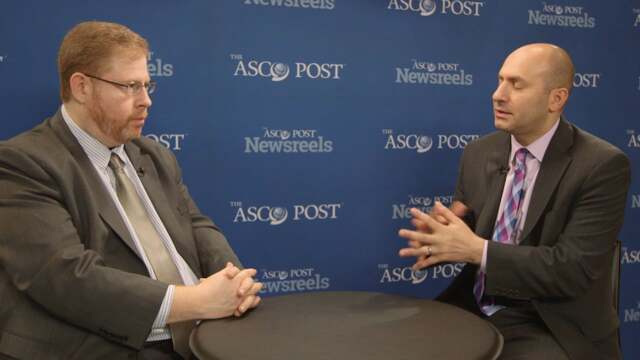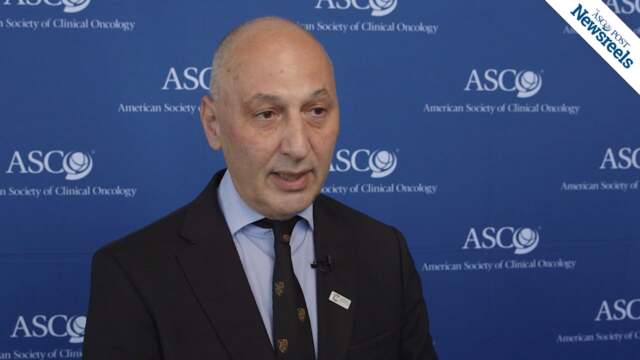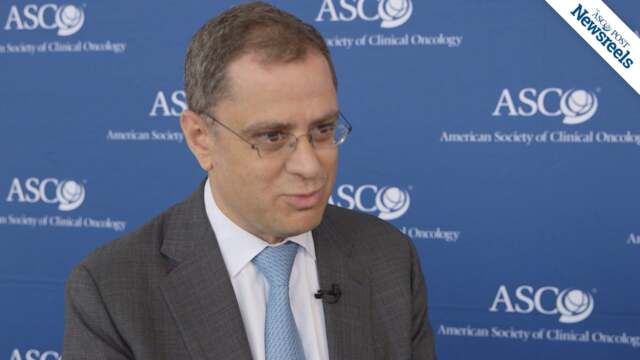Salah-Eddin Al-Batran, MD, on Gastric and GEJ Adenocarcinoma: Results From the FAST Trial
2016 ASCO Annual Meeting
Salah-Eddin Al-Batran, MD, of the Institute of Clinical Cancer Research and Nordwest Hospital, discusses findings from this international phase II study of epirubicin, oxaliplatin, and capecitabine with or without IMAB362, as first-line treatment of gastric and gastroesophageal junction adenocarcinoma (Abstract LBA4001).
Lee S. Schwartzberg, MD, of The West Clinic, reports on progress of the now year-old ACCC initiative to speed adoption of immunotherapeutics in community practices.
Jonathan E. Rosenberg, MD, of Memorial Sloan Kettering Cancer Center, and Toni K. Choueiri, MD, of the Dana-Farber Cancer Institute, discuss mutation burden—its role in response to treatment with PD-L1 immunotherapy and its impact on progression-free survival and overall survival, as well as the link between intrinsic expression subtypes and treatment outcome with atezolizumab (Abstract 104).
John P. Neoptolemos, MD, PhD, of the University of Liverpool, discusses findings from this international phase III study of adjuvant combination chemotherapy: gemcitabine and capecitabine vs monotherapy gemcitabine in patients with resected pancreatic ductal adenocarcinoma (Abstract LBA4006).
Ghassan K. Abou-Alfa, MD, of Memorial Sloan Kettering Cancer Center, discusses findings of this phase III study of sorafenib plus doxorubicin versus sorafenib in patients with advanced hepatocellular carcinoma (Abstract 4003).
Paul E. Goss, MD, PhD, of Massachusetts General Hospital Cancer Center and Harvard Medical School, discusses disease-free survival results from a study extending adjuvant letrozole for 5 years after completing an initial 5 years of aromatase inhibitor therapy alone or preceded by tamoxifen (Abstract LBA1).





